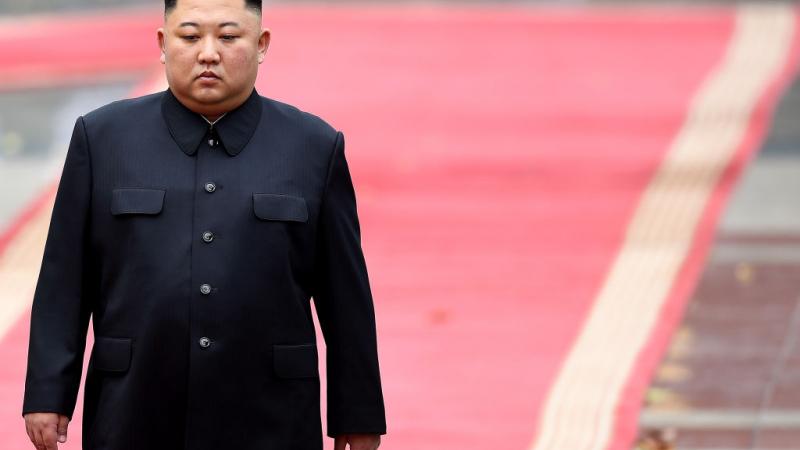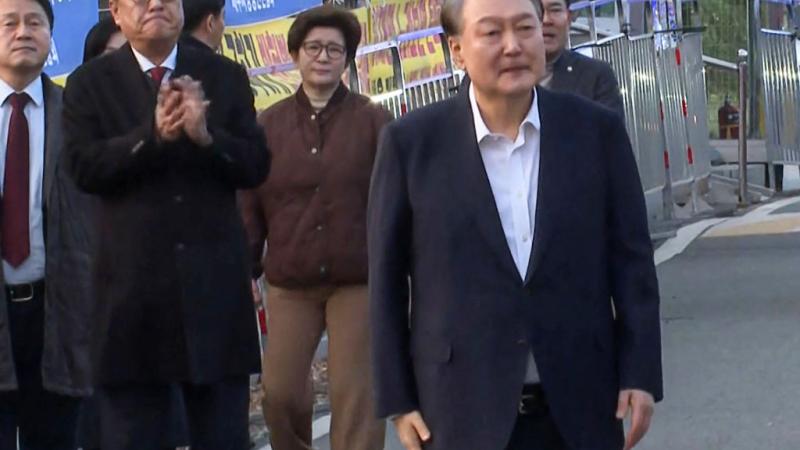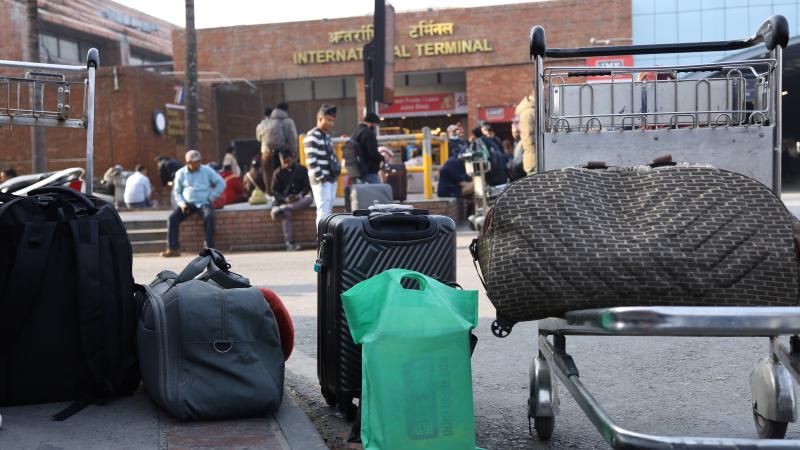U.S., China forge new anti-fentanyl deal but Beijing’s history of non-compliance looms large
China's history on joint agreements with the United States raises questions about how likely the country is to comply with the new fentanyl deal. Yet, President Biden remains confident.
The recent agreement on fentanyl between the United States and China is the latest in a series of agreements between the world’s two largest economies. Yet, China’s history of compliance on deals negotiated with both the United States and other countries has been lackluster.
On November 16, shortly after President Biden and President Xi met face-to-face on the sidelines of an important Pacific economic forum held in San Francisco, the Biden Administration announced that China agreed to resume bilateral cooperation in counternarcotics, specifically to address the ongoing fentanyl crisis.
“[The] People’s Republic of China (PRC) announced the resumption of bilateral cooperation on counternarcotics, with a focus on reducing the flow of precursor chemicals fueling illicit fentanyl and synthetic drug trafficking,” the Biden Administration’s press release reads.
“The PRC is now taking law enforcement action against illicit precursor suppliers, has issued a notice to industry warning Chinese companies against illicit trade in precursor chemicals and pill presses equipment, and has committed to restart key law enforcement cooperation,” it continued.
This marks progress in the joint efforts to counter global drug trafficking, which has been particular deadly for the United States which suffered from illicit fentanyl trade, according to the Biden Administration.
The press release states that the PRC has agreed to advise domestic industry on the enforcement of drug laws, take law enforcement action against synthetic drug and precursor suppliers, and resume cooperation through an international narcotics database used to track potentially illicit shipments worldwide.
This follows on a previous fentanyl agreement between the United States and China negotiated in 2019, where the PRC agreed to add all fentanyl related substances to its controlled substances schedule. Prior to this agreement, China was “the primary source of U.S.-bound illicit fentanyl, fentanyl-related substances, and production equipment,” according to the Congressional Research Service (CRS).
Yet, after the agreement saw direct shipments of fentanyl and related products from the PRC approach zero, Mexican criminal organizations replaced the direct pipeline to the United States, according to the Durg Enforcement Agency (DEA). These criminal organizations import fentanyl precursors from the PRC, manufacture the drug, and illicitly import it to the United States. The U.S. Treasury Department assessed that Mexican criminal organizations increasingly cooperate with Chinese money laundering operations in this drug trade, according to CRS.
This new pipeline is one part of the fentanyl trade that the Biden Administration hopes to counter through its new agreement with the PRC. The success of this new initiative can only be evaluated with time, however, past agreements and negotiations with China may indicate that the United States cannot rely on the PRC to deliver.
The State Department did not respond to a request for comment from Just the News on the prospects for success.
The 2019 fentanyl agreement itself reveals cause for concern.
After the initial agreement, China was criticized for poor enforcement, especially as tensions between the PRC and the United States increased amid the Trump Administration’s tough trade and human rights policies towards China. In fact, a Trump Administration decision to designate a component of China’s Ministry of Public Security, the Institute of Forensic Science, for sanctions because of its complicity in “human rights violations and abuses committed in China’s campaign of repression” and genocide against ethnic minorities in the Xinjiang region.
During this period, the Chinese government tacitly permitted Chinese money laundering organizations to assist Mexican drug cartels launder the dollars obtained in the U.S. as part of the fentanyl trafficking process.
“Chinese money laundering organizations and individuals have emerged as a central element of a financial scheme that takes bulk U.S. dollars received from drug operations in the United States and returns the profits to cartels in Mexico,” Anthony Ruggiero, Senior Director and Senior Fellow at the Foundation for Defense of Democracies, said at an April 2023 Oversight Committee hearing on the issue.
The drug cartel and Chinese money laundering nexus provides an opportunity for the cartels to repatriate dollars earned and for wealthy Chinese individuals to circumvent Chinese Communist Party controls on renminbi to dollar conversions. At the hearing, the witnesses highlighted China’s lack of action on the money laundering schemes, despite promising to work with the United States to curb the fentanyl trade. Previous defendants charged by the Justice Department in these operations show that the Chinese money launderers have access to China’s banking system.
Biden’s new agreement with Xi fails to address this nexus and leaves the door open for continued Chinese financial sector support for the drug trade.
China’s implementation of the “Phase One” trade deal negotiated with the Trump Administration is further evidence of the PRC’s credibility issues. The deal was set to be implemented over the course of 2020 and 2021 and China promised to buy $200 billion more in U.S. goods and services over the two year period. But, in the first year of implementation, China only imported $100 billion—about 58% of its target for that first year: $173.1 billion, according to CNBC.
The pressure on China to live up to its trade deal commitment extended after President Trump left office. President Biden’s Administration called for China to live up to its promises in the phase one deal in February of 2022, as it appeared that China would not meet its commitments. Through November of 2021, China had only reached 60% of the goal set by the agreement. The commits remain unfulfilled.
An Obama-era pact between the PRC and the United States on cybersecurity follows a similar pattern. In late 2015, the Obama Administration and the PRC came to an agreement that intended to prevent “cyber-enabled theft of intellectual property, including trade secrets or other confidential business information for commercial advantage,” according to the U.S. announcement.
Within a year of the agreement, an independent report found that the prevalence of Chinese hacking did in fact decrease, yet experts remained concerned that Chinese hacking attempts became more targeted and sophisticated in the aftermath of the agreement, according to a review by the Council on Foreign Relations.
By 2018, United States officials began to publicly recognize that China did not live up to their end of the cybersecurity agreement. Rob Joyce, a cybersecurity advisor in the Trump Administration told a conference in 2018 that Chinese commitment to the deal had significantly eroded, according to the Wall Street Journal.
“It is clear they are well beyond the bounds of the agreement today that was forged between our two countries,” Joyce said in 2018.
That same year, the Justice Department pursued charges against 10 Chinese intelligence officers for hacking U.S. aviation companies to further China’s industrial espionage, in direct violation of the agreement. The hacks continued. In 2023, for example, Microsoft announced that Chinese hackers successfully breached its email servers, compromising private and government accounts alike.
Despite results of past agreements with the PRC, the President Biden remains confident that the agreement will find success.
“It’s going to save lives, and I appreciate President Xi’s commitment on this issue,” President Biden said at a press conference following the meeting. “President Xi and I tasked our teams to maintain a policy and law enforcement coordination going forward to make sure it works,” he continued.
The Facts Inside Our Reporter's Notebook
Links
- Biden Administrationâs press release reads
- criticized for poor enforcement
- âhuman rights violations and abuses committed in Chinaâs campaign of repressionâ
- an April 2023 Oversight Committee hearing
- Chinese money launderers have access to Chinaâs banking system
- China promised to buy $200 billion
- according to CNBC
- Bidenâs Administration called for China to live up to its promises
- had only reached 60%
- according to the U.S. announcement
- according to a review by the Council on Foreign Relations
- pursued charges against 10 Chinese intelligence officers
- successfully breached its email servers
















